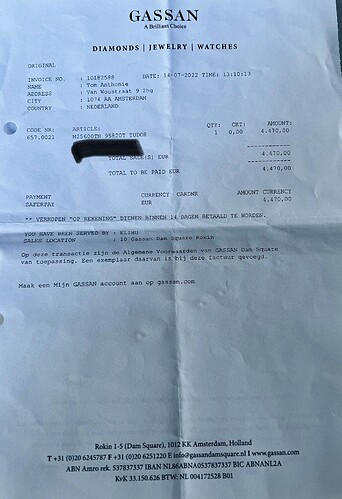“Two weeks ago I moved from Scotland to Germany to start a new job as an iOS engineer at SoundCloud,” wrote Matthew Healy on the Hackernoon website on July 10. “On Monday of last week I started that job. By Thursday evening I, along with 172 of my new colleagues, was officially being laid off.”
“Why was a business that was about to cut 40% of its workforce still hiring so aggressively?” he asked.
It’s a question that Healey and many other SoundCloud employees are still struggling to understand.
Reports started to appear online on July 5 that said SoundCloud was about to cut its 420-strong workforce by 40%. Bloomberg had read a draft blog post in which SoundCloud CEO Alex Ljung explained that the company was letting go of 173 staff, and shutting down its offices in London and San Francisco (leaving only offices in New York City and Berlin) as part of an effort to reduce costs at the company whose losses have been spiralling out of control.
“Nobody saw it coming,” a SoundCloud employee, who wishes to remain anonymous, told Business Insider. “It was a sudden announcement.”
Those that remain at the company could be forgiven for feeling nervous. SoundCloud’s existing cash reserves will only carry it through to the fourth quarter of the year, which is less than 50 days away, according to sources cited by TechCrunch. SoundCloud has attempted to downplay the TechCrunch report, although the company confirmed last week that it is in the process of trying to raise more capital.
The leaked blog post that Bloomberg saw was quickly published onto SoundCloud’s website and there have been two company all-hands meetings since.
![SoundCloud CEO Alexander Ljung]()
Foto: SoundCloud CEO Alex Ljung.sourceFlickr/Sorosh Tavakoli
During last week’s all-hands meeting – held on July 11 and monitored by a number of security personnel – “SoundClouders” were looking for answers as to why the company had to suddenly lay off almost half of its staff.
Staff wanted to know why they hadn’t been warned that cuts were on the way, and the remaining employees wanted assurance that the cost reductions would keep the company in business for the foreseeable future.
“The all hands today was absolutely horrible,” another SoundCloud employee, who also wishes to remain anonymous, told Business Insider shortly after the meeting. “[There were] no real answers and [they were] politically avoiding questions.”
Ljung and cofounder Eric Wahlforss accepted “no ownership of the responsibility and no admittance of fault,” the source claimed, adding that they also failed to state whether there would be any repercussions for the executives that have led SoundCloud into the sticky position it now finds itself in.
SoundCloud was born in Stockholm and raised in Berlin
SoundCloud was founded in Stockholm, Sweden, in August 2007. It launched in 2008 and started out as a cool, indie platform for people interested in discovering the latest and greatest new music.
“We build an online audio platform that’s used by people working with music to be able to receive, send, and distribute their music,” Ljung said in a YouTube video uploaded in October 2008 when SoundCloud had around 25,000 users.
“They use it on a daily basic to be able to get files they’re working on over to other people … or to be able to take their finished tracks and get them out to people who then sell the tracks or to other social networks. What we’re basically doing in the long term is trying to build a cloud-based audio platform that anybody who is involved with music can work with.”
The founders met while studying at KTH Royal Institute of Technology in Stockholm, which has a reputation for being one of the world’s best computer science universities. They bonded over a shared love of music and decided to create a platform that was something like Flickr or WordPress but for sound.
“We both were working in music and one way or another I used to be a sound designer for films and Eric used to release music,” Ljung said in the same YouTube video. “We had a lot of trouble trying to collaborate with people. Trying to use the web and getting sent music all the time. Getting it to our inboxes and getting the weird FTP logins. One day we realised OK it’s actually annoying when people send us new music they’re working on when that should be like a really happy moment.”
![Eric Wahlforss and Pharell]()
Foto: SoundCloud cofounder Eric Wahlforss (right) and Pharrell Williams. source Instagram/Eric Wahlforss
Shortly after setting up the company, the founders moved SoundCloud to Berlin, which was developing a reputation as one of the most startup-friendly cities in Europe at the time, partly due to its cheap accommodation and its abundance of talented programmers.
“If I look back 10 years ago, Berlin was a nascent [startup] ecosystem,” Wahlforss said at a startup event in March. “It didn’t have all of the infrastructure in place, but it certainly had some of the raw ingredients.”
The company became one of Berlin’s most-loved startups and in May 2014, SoundCloud was reported to have caught the eye of Twitter, which was considering buying the platform. Twitter had already tried to launch a music product to get people to stay longer on the platform, but the attempt failed.
Ultimately the Twitter talks fell through. This is thought to be partly because SoundCloud wanted a deal worth $1 billion (£770 million) when its valuation was only $700 million (£386 million). It could also be because, despite its best efforts, SoundCloud had been plagued by copyright infringement issues.
SoundCloud was constantly battling with the major music labels
In May 2015, Sony Music pulled music by several key artists from SoundCloud after the label decided it wasn’t making enough money from music hosted on the streaming site. Original recordings from Sony artists like Adele, Kelly Clarkson, Miguel, and Hozier were removed. They were later added again after SoundCloud negotiated a new deal with Sony Music.
In August 2015, SoundCloud was sued for not paying musicians royalties. In an email sent to its members, the Performing Rights Society for Music (PRS for Music) announced that it felt it has “no alternative but to commence legal proceedings,” following “five years of unsuccessful negotiations.”
By November 2015, loyal SoundCloud users were starting to lose faith in the site as it shifted from a hangout for DJs and radio hosts to a commercial platform. Users said the music streaming app and website had strayed from its earlier focus on supporting DJs and felt that it was unfairly removing content and focusing on high-profile users and licensed music.
At the time, Business Insider spoke to Chris Reed, known as Plastician, owner of the Terrorhythm Recordings music label which he launched in 2002. He said that he “had trouble” with a track on his personal SoundCloud profile as well as the profile of his record label. “I own all the rights to it, it contains no illegal samples, and I even own the publishing to it,” he said. “So I was really confused as to why this is happening.”
![Adele auckland new zealand]()
Foto: Musician Adele had her music removed from SoundCloud during a dispute with the service. source Phil Walter/Getty Images
Over time, the company managed to successfully negotiate deals with many of the major record labels – but this didn’t come cheap. SoundCloud had to sacrifice some of its equity in the process but bringing the major labels on board helped it to compete with the likes of Apple Music and Spotify.
Today, the company has deals with all three major music labels: Sony Music Entertainment, Universal Music Group, and Warner. In the process, it’s given away a significant amount equity, with 3-5% going to Warner and possibly more going to Universal.
SoundCloud introduced ads and a premium service
SoundCloud claims to have around 175 million listeners who can tune into listen to more than 150 million pieces of content. For most of its life, it was completely free and had no revenue stream.
It introduced advertisements in mid-2015 ahead of the launch of its £9.99 SoundCloud Go subscription streaming service, which launched in March 2016 to compete with Spotify, Apple Music, and Amazon Music. There’s also a cheaper £4.99 option that allows users to listen to content without ad interruptions but they don’t get access to all of the music on the platform.
The deals with the major labels are what allowed Spotify to launch its premium service. That essentially means the company was forced to give away chunks of equity to launch its music streaming service.
![SoundCloud Go]()
Foto: source SoundCloud
But ultimately, SoundCloud remains unprofitable. The last official numbers show SoundCloud incurred a €51 million (£45 million) loss in 2015, higher than the €39 million (£35 million) loss it recorded in 2014. The company’s revenues in 2015 were €21 million (£19 million).
During 2015, SoundCloud’s headcount grew by 25%, up from 236 to 295 people. A Companies House filing shows that it spent €26.77 million ($28 million, £23 million) on wages and salaries in the year. That meant the average annual salary at the company hit €90,729 ($95,000, £77,000) in 2015 – up 19% on the €75,979 ($80,000, £65,000) average wage paid out to staff in 2014.
![Soundcloud revenue]()
Foto: source Music Business Worldwide
New staff were hired even though job cuts were imminent
One major point of contention is the fact that SoundCloud hired a number of people into roles over the last few months knowing full well that they were going to have to make large redundancies, according to TechCrunch.
Developer Vojta Stavik and his girlfriend were planning to pack up their lives in Prague and move to Berlin where Stavik was planning to take his dream job at SoundCloud. He and his girlfriend were planning to let go of their apartment, say goodbye to their friends and family, and relocate to the German capital.
Stavik was due to start on July 17 but his engineering role was axed on July 7. He told Business Insider on the day he was due to start: “I’m moving there this week by my own without having any particular job.”
Stavik applied for the job at SoundCloud in April. In May, after a 20-minute Skype call and a remote coding assignment that he spent 20 hours on, SoundCloud flew him to Berlin for a series of interviews and tests. He was offered a job at SoundCloud two days after his trip to Berlin
“I was super happy and excited about moving to Berlin!” Stavik wrote in a blog post explaining the process on July 9.
SoundCloud told Stavik that it would provide him and his girlfriend with temporary accommodation for their first few weeks in Berlin. They were supposed to get the keys on July 13.
![Factory Berlin Mitte]()
Foto: SoundCloud leases the top three floors of Factory Berlin but it is planning to downsize, according to someone with knowledge of the matter. source Factory
On July 6, Stavik saw a report about the job cuts at the company. He immediately sent an email to the recruiter asking whether they affected him.
On July 7, he received an email from the relocation agency saying it had paused his relocation process and it was waiting for SoundCloud HR to provide it with more information. The company also told him that everyone at SoundCloud had been given a day off to process the news. “That was the moment when I realised that I’m probably screwed,” Stavik wrote on his blog.
“For the whole day, I was sending emails to every contact person at SoundCloud I had, asking them about my planned start day, having no response.”
Finally, at 8pm that evening, SoundCloud chief technology officer Artem Fishman called him up and told him his job has been cancelled. “I told him I already quit my job, let my apartment in Prague go, and was supposed to move to Berlin in just a few days! I also asked him about the possible compensation. The response was negative.”
Stavik claimed that Fishman said SoundCloud wanted to act like his application never happened.
Stavik is now on the hunt for a job in Berlin.
Elsewhere, software engineer Matthew Healy wrote a blog post on titled: “My week at SoundCloud.”
In the post, Healy said: “Two weeks ago I moved from Scotland to Germany to start a new job as an iOS engineer at SoundCloud. On Monday of last week I started that job. By Thursday evening I, along with 172 of my new colleagues, was officially being laid off.”
Healey had secured a lease on an apartment and sold many of his belongings in order to move to Berlin to work for SoundCloud.
“I had my first day at SoundCloud on the Monday before I signed that lease. It was a ridiculous start to a new job. First, there was the obligatory branded swag: a t-shirt, a water bottle, a pair of headphones, all in a branded tote bag. Then there was the office itself: an incredible space where every detail had been considered, with free snacks and drinks, and an espresso machine. I couldn’t believe how lucky I was to work there.
“Eleven other people started with me. Around the office, people were telling us it was the biggest intake in months.”
Stavik, Healy, and many other SoundCloud staff have added their names to an open spreadsheet of SoundClouders for hire. Recruiters that are interested in hiring the laid off SoundClouders are also adding their names and details to a separate page on the spreadsheet.
TechCrunch reports that SoundCloud’s founders told staff during one of the post-redundancy all-hands meetings that investors had asked them in March to make the job cuts as part of a $70 million (£54 million) debt funding deal that was first reported by Business Insider. SoundCloud was reportedly forced to raise the debt funding after it failed to raise $100 million (£77 million) in venture funding.
Several top tier executives left SoundCloud in the months leading up to the job cuts, possibly because they knew they were on the way. SoundCloud’s COO and finance director both left the company around February, while veteran SoundCloud employee David Noël left in March.
During a fireside chat with TechCrunch editor at large Mike Butcher in Berlin on July 12, Ljung carefully dodged questions that staff would no doubt love to know the answers to.
“We were hiring people up until we shifted strategy,” Ljung said at the Tech Open Air conference. “We operate in many different countries. In some countries it takes a long time for people to be hired.”
![SoundCloud CEO and Mike Butcher]()
Foto: Mike Butcher interviewing SoundCloud CEO Alex Ljung. source Tech Open Air
SoundCloud is desperately trying to raise more money as cash reserves dwindle
The company’s current cash reserves will only last until the end of the fourth quarter, according to TechCrunch sources. Ljung confirmed on July 12 that he’s in the process of trying to raise more money for the company after he was asked about a rumoured $250 million (£193 million) funding round.
Ljung repeatedly said during his interview with Butcher that he was adamant on building a strong and independent music streaming platform and refused to comment on Google and Spotify acquisition rumours. The Financial Times reported last September that Spotify was in “advanced talks” to buy SoundCloud for $1 billion (£770 million), while Music Business Worldwide reported in January that Google was mulling an acquisition that was likely to be in the order of $500 million (£386 million).
“It’s a very sad event to let go of these people but if we zoom out and look at the entire company right now, I think people are missing a couple of key points,” Ljung said in Berlin. He highlighted how SoundCloud was the twentieth most-downloaded app in the US App Store on the day before the interview. “We have an enormous user base and very good growth. Very good engagement too. Everything in terms of the business and user metrics is growing.
“Now is the time where we have to take more control over our situation,” he said. “We’re in the process of reducing our cost basis significantly. We’re taking more control of our own future and ensuring our independence.”
Chance the Rapper: ‘SoundCloud is here to stay’
On July 13, as rumours circulated that SoundCloud was close to running out of money, hip hop artist Chancelor Bennett (a.k.a Chance the Rapper) wrote on Twitter: “I’m working on the SoundCloud thing.” The next day, he followed up with another tweet that read: “Just had a very fruitful call with Alex Ljung. @SoundCloud is here to stay.”
What was said on the call isn’t known. Some people speculated that Bennett’s mysterious tweet meant that he had given SoundCloud some money, while others speculated that he might be buying the service. It wouldn’t be the first time a solo artist has bought a music streaming platform – Jay Z acquired Tidal in 2015.
![Chance the Rapper]()
Foto: Chance The Rapper performs onstage during the iTunes festival at the Roundhouse in Camden, north London, Friday, Sept 30, 2016. source Photo by Joel Ryan/Invision/AP
A representative for SoundCloud reportedly told Variety that the rapper is “essentially spreading good vibes about the company during a challenging time.” The representative added that they were unaware of a more material commitment.
Shortly after Bennett’s tweet, a post from Ljung appeared on SoundCloud’s blog. It read:
Hey everyone,
There’s an insane amount of noise about SoundCloud in the world right now. And it’s just that, noise. The music you love on SoundCloud isn’t going away, the music you shared or uploaded isn’t going away, because SoundCloud is not going away. Not in 50 days, not in 80 days or anytime in the foreseeable future. Your music is safe.
Along with each of you, we’ve built this incredible creative community of artists, podcasters, DJs, producers and more who are the driving force in pushing culture forward in the world. That’s not going to change. Last week we had to make some tough decisions to let go of some of our staff, but we did this to ensure SoundCloud remains a strong, independent company.
Thank you for the outpouring of love and support. Some of you have asked how you can help-spread the word that we’re not going anywhere and keep doing what you’re doing-creating, listening, uploading, sharing, liking, and discovering what’s new, now and next in music. SoundCloud is here to stay.
Peace, Alex
SoundCloud cofounders continue partying, despite the layoffs
It’s safe to assume that the last two weeks have been among the most difficult for SoundCloud since it was founded.
But SoundCloud’s cofounders appear to be trying to carry on as normal. Both cofounders have attended parties in Berlin over the last couple of weeks, with Wahlforss co-hosting one with his wife last Thursday at a rural site just outside Berlin. He refused to answer Business Insider’s questions at the party, saying: “I don’t want to do an interview.”









































![[TK] Breitling Avenger in zeer mooie staat €2250,- [TK]](http://files.s3.horlogeforum.nl/uploads/db9961/optimized/4X/8/a/a/8aa36e8c34c48527881c0d83307df3775272812c_2_375x500.jpeg)
![[TK] Breitling Avenger in zeer mooie staat €2250,- [TK]](http://files.s3.horlogeforum.nl/uploads/db9961/optimized/4X/0/4/f/04f8eca84f2411bd1b9f2fe88b7b255f0e317d7d_2_375x500.jpeg)







